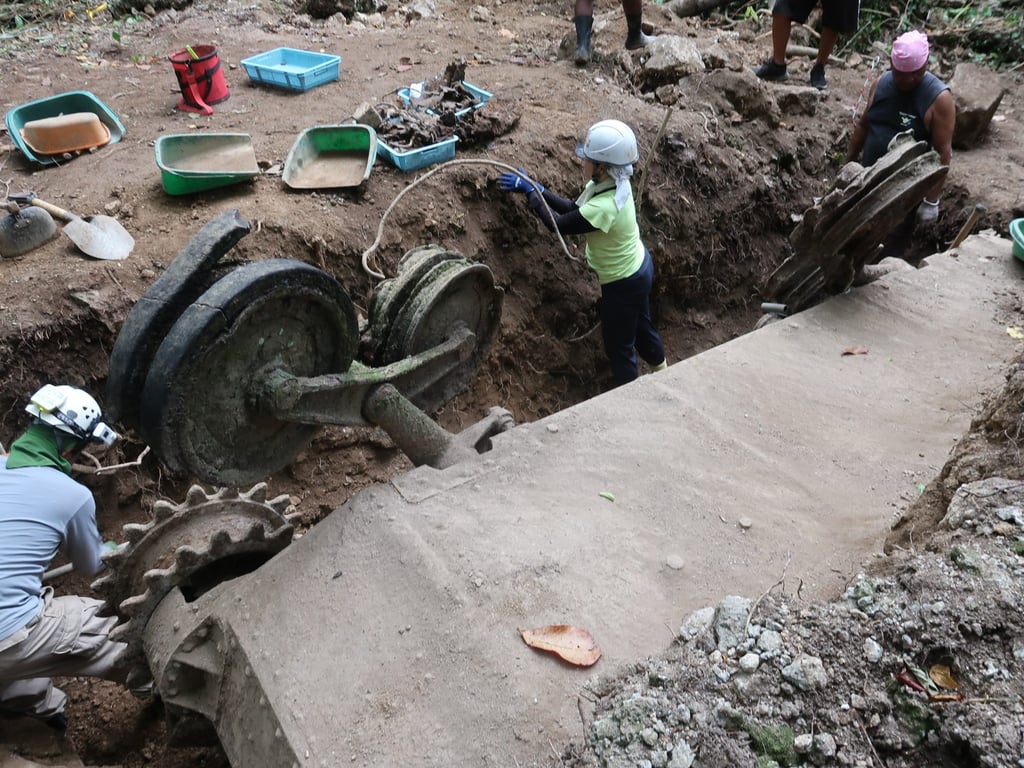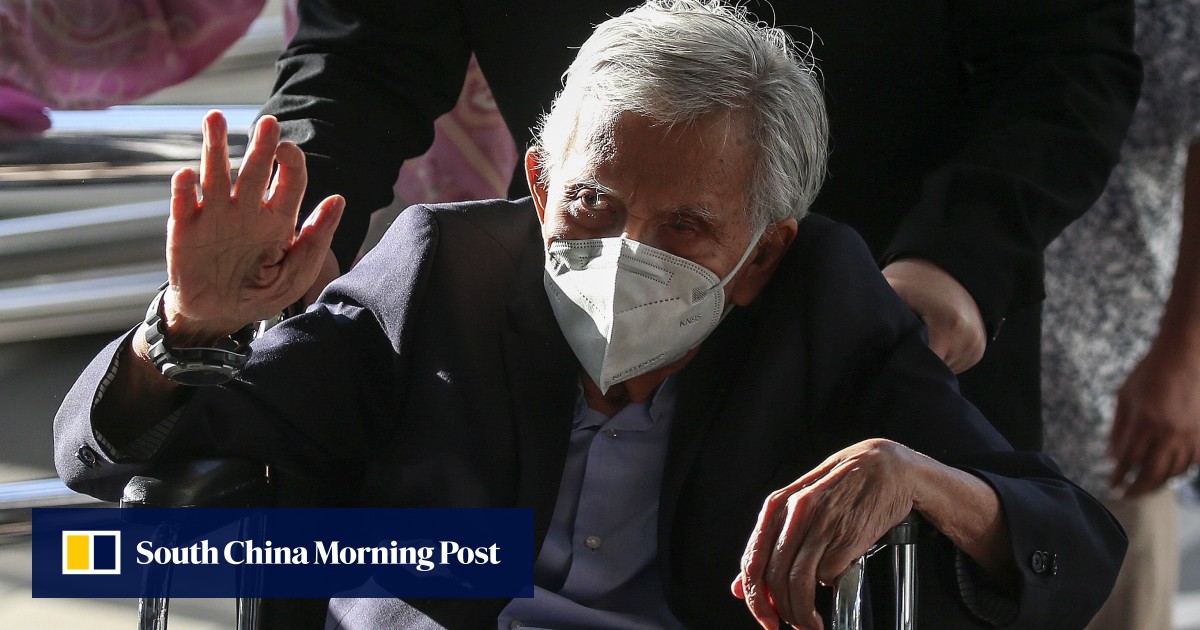Covered in cloying grime, Toshiko Kido kneels down to scrape away at the mud and fist-sized limestone blocks that hold an overturned Japanese military vehicle firmly in place. Using a trowel and a short-handled rake, she carefully digs a trench alongside the tank’s turret, all the while driven by her relentless pursuit to uncover the single word that could bring closure to her decade-long search for her grandfather.
Kido is looking for the word Sakura, Japanese for cherry blossom, in raised lettering on the turret of the Type 95 light tank, destroyed in the opening phase of the US invasion of the Pacific island of Peleliu on September 15, 1944.
Sakura was the tank her grandfather commanded as the Imperial Japanese Army attempted to resist the invasion. There is no record of what happened to Captain Kunioyomi Amano or the two other men in the vehicle’s crew, only that they never returned from their mission to repel US Marines.

A total of 17 Type 95 tanks were committed to the counter-attack after the US Marines came ashore on a bloody stretch of shoreline, identified as White Beach, on the west coast of this tiny island. So far, four have been located. None have the word sakura on their turrets.
“My father never met his own father,” said Kido, a 54-year-old school administrator from Fukuoka in southern Japan. “He was serving with the army in China when his wife, my grandmother, became pregnant. It was decided that she would return to Japan to have the baby when he received orders transferring him to Peleliu.”
Captain Amano never returned from the South Pacific, she told This Week in Asia, “And never held his son.”
Kido first came to Peleliu with her father in 2009, Yasuomi, to pay their respects to the war dead. And while her father is now 81 and too frail to make the journey, Kido has since joined 14 missions organised by the Japan Association for the Recovery and Repatriation of War Casualties (JARRWC).

 By South China Morning Post | Created at 2024-09-28 08:02:47 | Updated at 2024-09-30 09:30:00
2 days ago
By South China Morning Post | Created at 2024-09-28 08:02:47 | Updated at 2024-09-30 09:30:00
2 days ago



